Posted on 12/22/2022
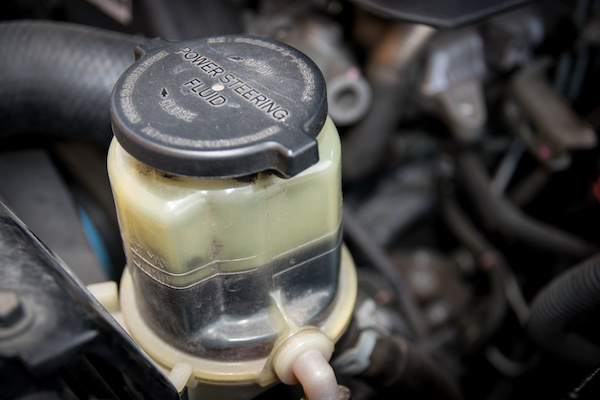
Has the question of whether you need to replace your car's power steering fluid or not been bothering you? You've come across the right article to best educate you on the matter. Don't let worry take control when you can know once and for all. What Is Power Steering Fluid? Power steering fluid is a fluid that is used by the power-steering system to establish a hydraulic contact between both the steering wheel with the front wheels, enabling it to move more easily. Additionally, power steering fluid greases the steering system's moving elements, ensuring maximum performance. Does the power steering fluid need to be replaced? Although the power steering fluid doesn't really expire, if it is not replaced or drained as necessary, it will deteriorate in the system with time. Here are signs that you need to replace your power steering fluid; Power Steering Fluid Leakage In case you notice a red fluid leaking onto the floor of your driveway, then it's most likel ... read more
Posted on 11/30/2022

The lights on the outside of our cars, SUVs, and trucks serve many different purposes. Sometimes, it can be challenging to keep track of all of them. Since they are external, it can be hard to detect when they go out. Lights are vulnerable to outages, damage, and even electrical failures. Whenever you require automotive lighting service or repairs, turn to Pete’s Auto Service for help. Types of Car Lights Low Beam Headlights - These are the basic headlights that aim forward to light up your path and let others know of your presence without blinding them. They improve visibility and safety and can be used pretty much anytime and through any conditions. High Beam Headlights - These are your bright headlights that illuminate dark or unlit roads. You should avoid using them when vehicles are coming toward you or driving in front of you. It is also frowned upon to use them when it is precipitating. Daytime Lights - Most modern vehicles have this category of lighting that tu ... read more
Posted on 10/29/2022

When you are driving around and suddenly feel a vibration in your car, it can be a little unnerving. Whether you are just getting used to the brakes, or they have always been like this, it is important to know what causes that vibration when you brake. What Actually Happens When You Are Braking? When you press down on the brake pedal and stop the car, there are several things happening at once. First, you are stopping the rotation of your tires (which is what actually causes the friction that causes your car to slow down). Second, you are forcing fluid through hoses connected to pistons within each brake caliper (that is what makes those pistons push against pads). Third—and this is where things get interesting—the fluid pushes back against those pistons to create pressure that helps slow down your car further. What Causes The Vibration When Braking? Vibrations while breaking are never a good sign! They can indicate a problem with your car's braking system, engine ... read more
Posted on 9/26/2022
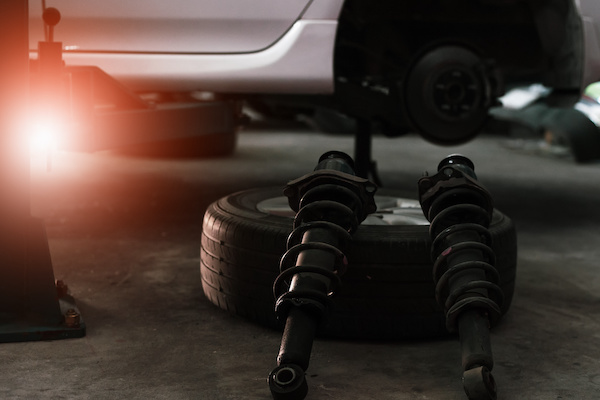
Before we delve into the details of what shock absorbers do and how long they last, let's begin by answering a simple question. What are shock absorbers? Well, they are a crucial part of the vehicle's suspension designed to absorb the compression and rebound of the springs and suspension. They are an oil-filled cylinder. What Do Shock Absorbers Do What Do Shock Absorbers Do? Shock absorbers control unwanted or excess spring motion. They keep your car tires in contact with the road at all given times. When a vehicle hits a bump or a dip in the road its suspension and springs move so that the car tires remain in contact with the road and absorb the energy. Shock absorbers dampen the movement of the springs and convert the kinetic energy into thermal energy. Types of Shock Absorbers There are three different types of shock absorbers and they differ for the different types of vehicles they are found on. Conventional telescopic shock absorbers - these are the simplest types of ... read more
Posted on 8/28/2022
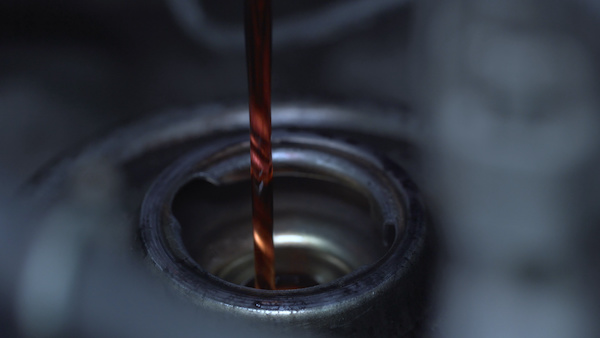
It’s no secret that your car needs oil changes, but what about the transmission? The transmission is equally just as important as the engine, and it requires fluid maintenance too. Without transmission fluid, your transmission would not be able to transfer a sufficient amount of power from the engine to the wheels. Similar to motor oil, transmission fluid acts as a lubricant and prevents the transmission components from overheating. As time passes, the transmission fluid will break down. And it can become less effective sooner when you put your car in strenuous conditions, like constant stop-and-go traffic or carrying excess weight. When the transmission fluid deteriorates, you can remedy your transmission with a flush. Below are the top 3 signs that indicate you need a transmission fluid exchange: Problems with Gears Whether you own an automatic or manual transmission, both need clean transmission fluid to go from gear to gear smoothly. When the fluid ages, it c ... read more
Posted on 7/26/2022
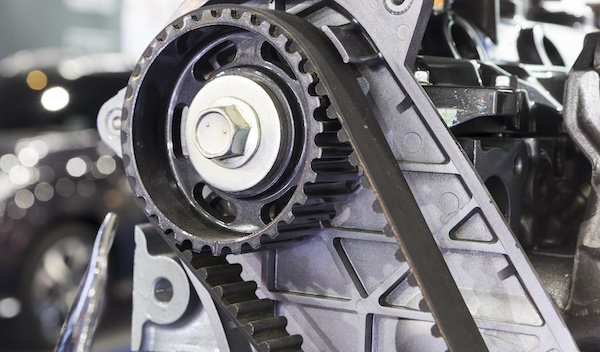
A timing belt is a crucial part of a car's engine, responsible for making sure the pistons and valves operate in harmony. Over time, it will inevitably wear out and need to be replaced - but how often does this need to happen? General guidelines Luckily, there are some general guidelines you can follow. Most carmakers recommend replacing your timing belt every 60,000 to 105,000 miles, although this varies depending on the make and model of your vehicle. For example, Honda recommends replacement at 60,000 miles for most of its vehicles from 2001 or later, while Toyota generally recommends 90,000 miles. You should always check your owner's manual for a specific recommendation for your car. In addition to mileage, there are a few other factors that can affect how often you need to replace your timing belt. If you frequently drive in stop-and-go traffic or in extreme hot or cold weather conditions, your timing belt may wear out more quickly. Additionally, if you regularly tow he ... read more
Posted on 6/28/2022

The 4th of July is a well-loved, celebrated day here in the United States. It is full of traditions, including BBQs, pool parties, good food, and fireworks. While you’re celebrating with your loved ones this holiday, we want you to be safe. While you fire up the grill or take a drive to the fireworks show, make sure you follow some of our helpful tips below: Driving Tips Independence Day is the most dangerous day to drive in the US. A large deal of it is due to drinking and driving accidents. Therefore, please remember to never drink and drive. If you do plan to celebrate the holiday with several drinks, have a backup plan to get home. If you’re planning to take a trip out of town for the weekend, make sure to plan ahead. The busiest travel times are around 3-8 PM, so get out early if you can. Make sure you pack an emergency kit with you to include the essentials, like jumper cables, first aid kit, spare tire kit, and more. At Pete’s ... read more
Posted on 5/26/2022

Preparing your car to make sure it can handle all weather conditions is required for every vehicle. Each weather condition or change in the atmosphere has its effects on a car. Not preparing or tuning your car to adapt to the new weather conditions may it be winter or summer could cause wear and tear on some parts of your vehicle. During summer you experience hot days and warm nights which have effects on your vehicle. The engine works extra hard during summer and other parts like the tire and air conditioning also are affected by the heat which takes a toll on them. Having in mind that the hot weather affects some parts of the vehicle, here are some of the things that you need to check to prepare your car for summer; Too much heat expands the air pressure in your tires. This could result in the tires being over-inflated and the tires could blow out or excessively wear. Always maintain the pressure at the recommended psi. Change your oil and oil filter The oil keeps your engine pa ... read more
Posted on 4/27/2022
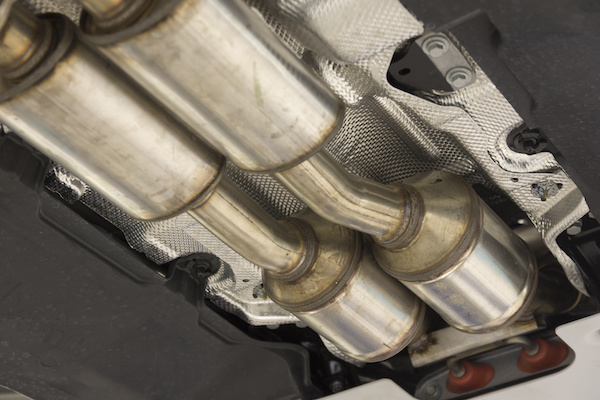
A catalytic converter is an emissions control device that helps convert pollutants in exhaust gas from an internal combustion engine into less harmful compounds. The converters work by using a catalyst, often platinum or palladium, to speed up a chemical reaction. Here are some of the most common symptoms of a bad catalytic converter: 1. Reduced Engine Power If your catalytic converter is starting to go bad, you may notice a decrease in engine power. This is because the catalytic converter is responsible for converting pollutants into less harmful compounds, and a clogged or damaged converter can't do its job as effectively. As a result, your engine has to work harder to produce the same amount of power, which can lead to reduced performance. 2. Increased fuel consumption Another symptom of a bad catalytic converter is increased fuel consumption. This is because your engine has to work harder to produce the same amount of power when the converter is damaged. As a result, you ... read more
Posted on 3/28/2022
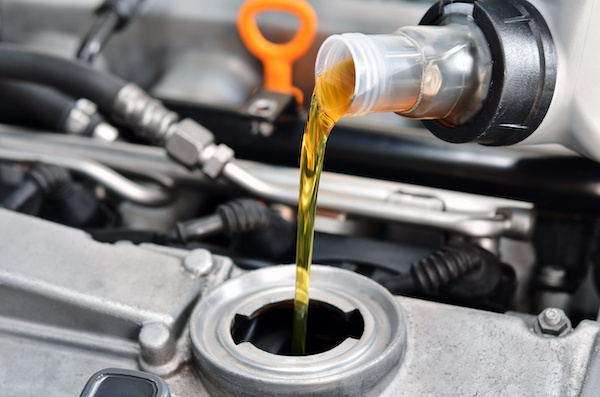
Preventative maintenance is the key to ensuring that your vehicle will last you for years to come. It also helps you avoid major repairs down the road, which will save you lots of time and money in the long run. Your safety is also important, and preventative maintenance is actually a huge factor in preventing accidents and breakdowns on the road. The following services are some key examples of preventative maintenance and a general idea of when they should be completed. However, it is important to always refer to your vehicle's owner's manual for the correct services and intervals that are suited for your vehicle. The oil filter should be changed regularly - every 3,000 to 4,000 miles. All fluids should be checked at least once a year, including brake, power steering, transmission, antifreeze, and windshield wiper solvent. Tires should always be inflated properly. Under-inflated tires can result in a loss of fuel efficiency and puts your tires at risk for a blowout. Most n ... read more